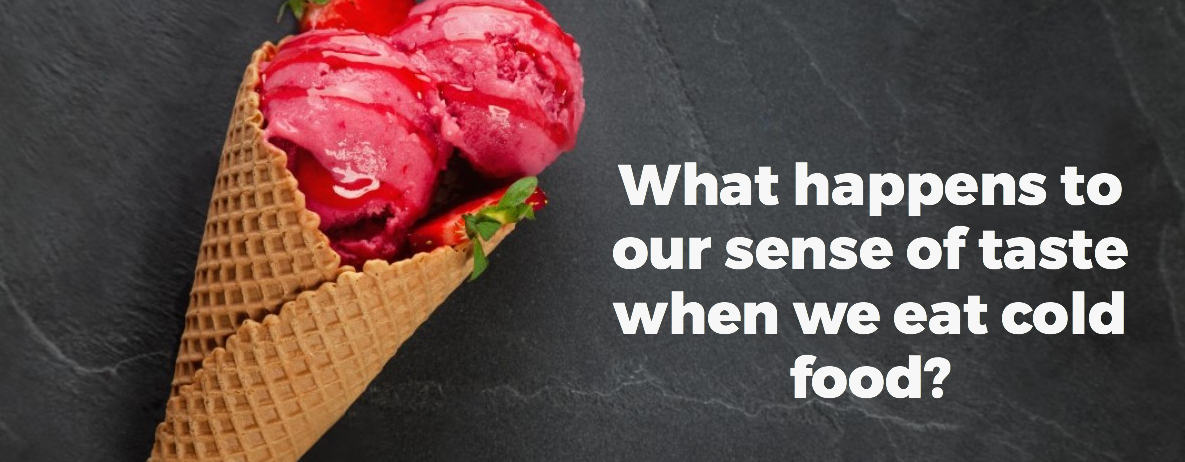The sense of taste is a sensation elicited by stimulation of the taste receptor cells, enabling you to enjoy food and beverages that the world has to offer. The flavour of food is inspired by the sense of smell, which is why the flavourings to several dishes disappear when we have a cold therefore becoming a tasteless experience. The intelligence of taste is part of our chemical ‘sensing’ system, taste is activated when tiny molecules are released by chewing or the swallowing of food, triggering special sensory cells in both the mouth and the throat.
When we eat cold food or have a cold beverage we excite our sense of taste, our taste buds come more alive and send an instant message to our brains informing our body to re act instantly to the substance that is in our mouths. For example, if you were to have a spoonful of ice-cream which is identically best served cold, the message that is sent back to our taste buds is to warm the ice-cream up in our mouths and make it body temperature, enabling the sweet sensational taste of sugar to swim around our mouths. If ice-cream was eaten as it is kept (at freezing point) without the mouth warming it up and sending it in to liquid form then it wouldn’t taste so appealing – in fact it would taste bitter and sour as the warmth of our mouths enables the sugar to escape, but it should be consumed immediately and never kept in a liquid form as it becomes far too sickly to drink.
The same suit follows for hot food or hot beverages. Ever had a sip of your coffee once it’s gone past the point of the enjoyable room temperature of lukewarm? It is unappealing to our taste buds and it is common that we pull a face of disgust when making this mistake. The human body itself is a magical and wonderful thing so it comes as no surprise when cold food is entering the mouth that the body is able to correctly identify that it is in fact a cold dish. With that being said our sense of taste is heightened when eating or drinking something cold, this is because cold things excite the body, it makes our taste buds become more sensitive allowing us to feel the cold sensation of the food/beverage all the way down our throats, glazing each and every inch of our insides.
Overall, our sense of taste is electrified when eating cold food. Our body accepts cold food and beverages more than it does with hot food and beverages. This is because our taste buds are excited at the taste of cold food as we are able to appreciate the taste of the beverage or food that we are consuming more. Sensitive compounds on the tongue are heat sensitive, therefore foods/beverages that are meant to be enjoyed hot should be kept at a reasonable temperature for enjoyment, and those that are meant to be enjoyed cold should be kept cold to avoid disappointment.
